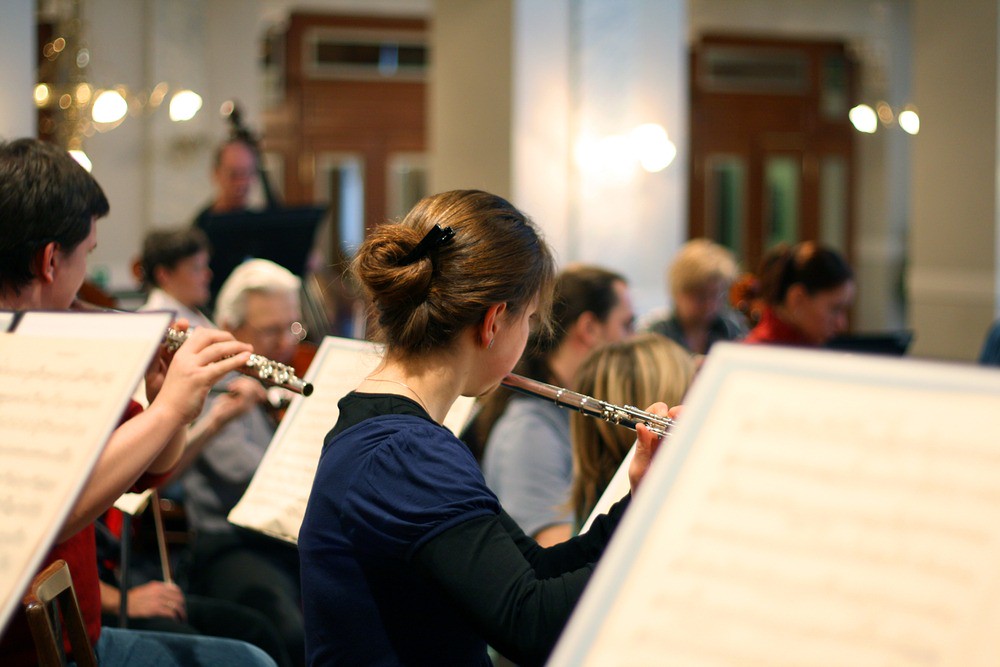
–The Musician’s Way, p. 189
Recall the last time that you were distracted during a performance: How did you cope?
Onstage distractions are bound to occur: doors will slam, thoughts will intrude, coperformers will miss entrances, sneezes will well up, nerves will make our limbs shake.
But whatever the distraction, with countermeasures at hand, we can stay focused and keep the music flowing.
Here’s a distraction-busting technique that I teach and rely on. All four parts are meant to be executed simultaneously.
How to Deal with Distractions while Performing
1. Breathe
Inhale deeply into the abdomen and exhale fully as you project confident body language.
2. Release tension
Lengthen your spine, let your shoulders widen, free your legs, and smile inwardly.
3. Listen
Listen intently to yourself and any coperformers as you sculpt every phrase.
4. Image ahead
Sense upcoming phrases with clarity and emotion.
How to Practice Dealing with Distractions
To rehearse this technique, use it during practice sessions, rehearsals, and practice performances whenever your attention drifts.
You might also gather with colleagues in a performance-development group and take turns performing for each other while those who listen periodically do distracting things such as cough, talk loudly, drop items to the floor, or cause their phones to ring.
In time, you’ll be able to focus despite any distraction and thereby keep yourself and your listeners transfixed by music.
The Musician’s Way details strategies to build up comprehensive practice and performance skills.
Related posts
Assessing Your Performance Skills
Becoming a Confident Performer
Mastering Performance Skills
Mental Imaging
Practicing Performance
© 2012 Gerald Klickstein
Photo © T. Hlavacek, licensed from Shutterstock.com


Am goin to be singin on sunday and there’s alot of friends who hav promisd to distract.i believ ur piece will help me.tanx
The day you are able to let go of “the need of sounding good” you will be so relaxed that you have nothing to worry about when performing. Thats my experience.
I’d say that by actively focusing in practice, and through building performance skills, we can reliably focus in concert. Without cultivating such skills, I think it’s unlikely that musicians can expect to be secure on stage.
Distractions are my worst fear when playing in a live-situation – even though I haven’t had that many!
Would you say that it is something that simply goes away with time, or does it have to work actively, like some of the points you mentioned, to get rid of it?
Thanks, Sam! I believe you’re recalling workshops at Juilliard taught by Don Greene, a performance psychologist who works with musicians, athletes, and others. Its part of his ‘stress conditioning’ training.
As always, great stuff Gerald. A tough subject for all musicians and these are great suggestions. There was a great NPR story years ago about a class at a high profile school (Julliard maybe) with a class based on getting over these distractions-students performed while the teacher would slam doors, talk, etc. Pretty interesting stuff!